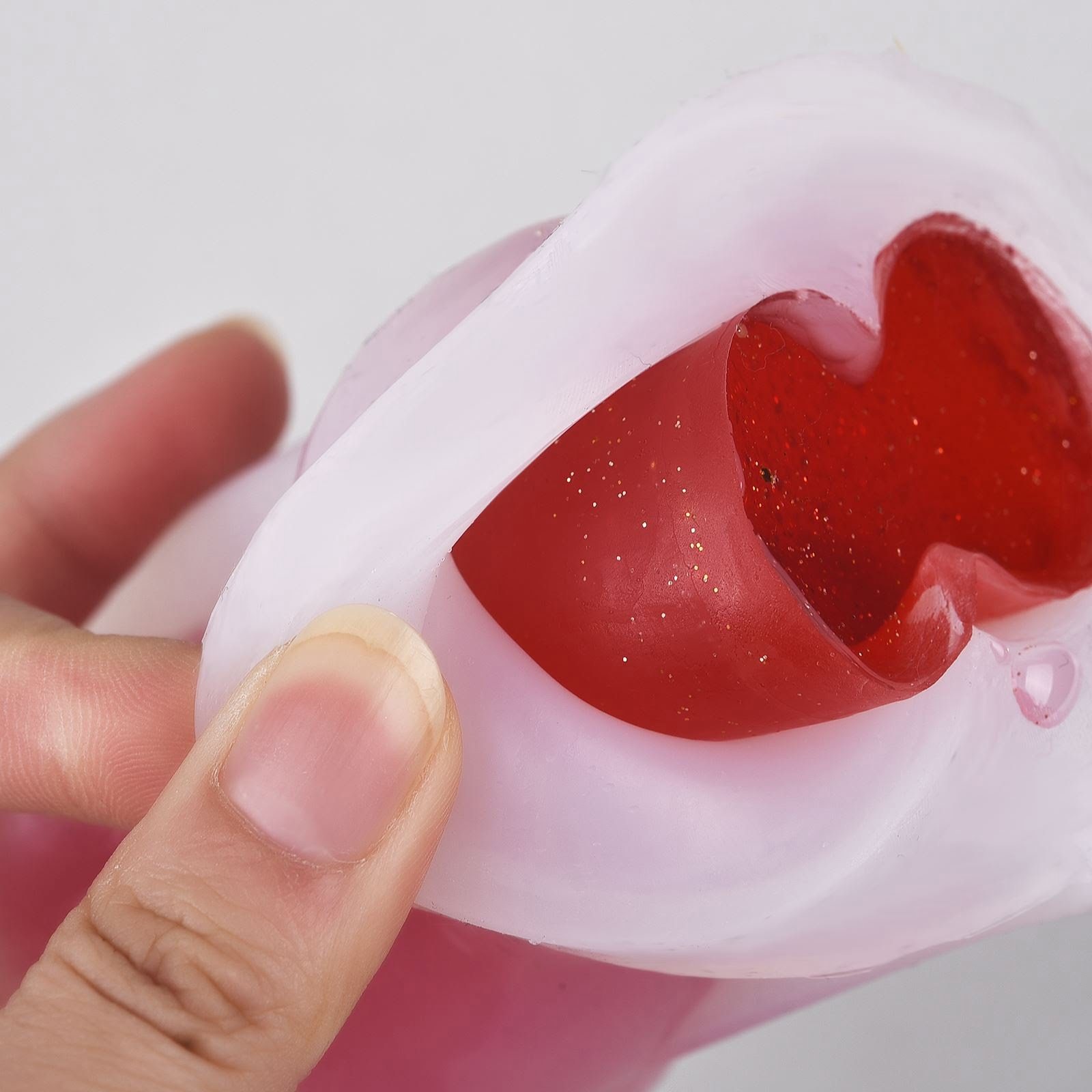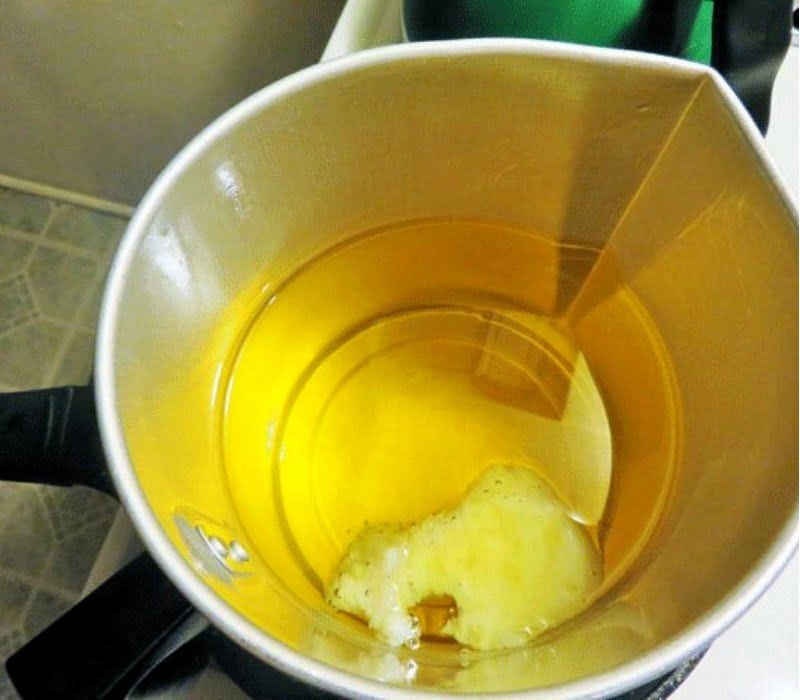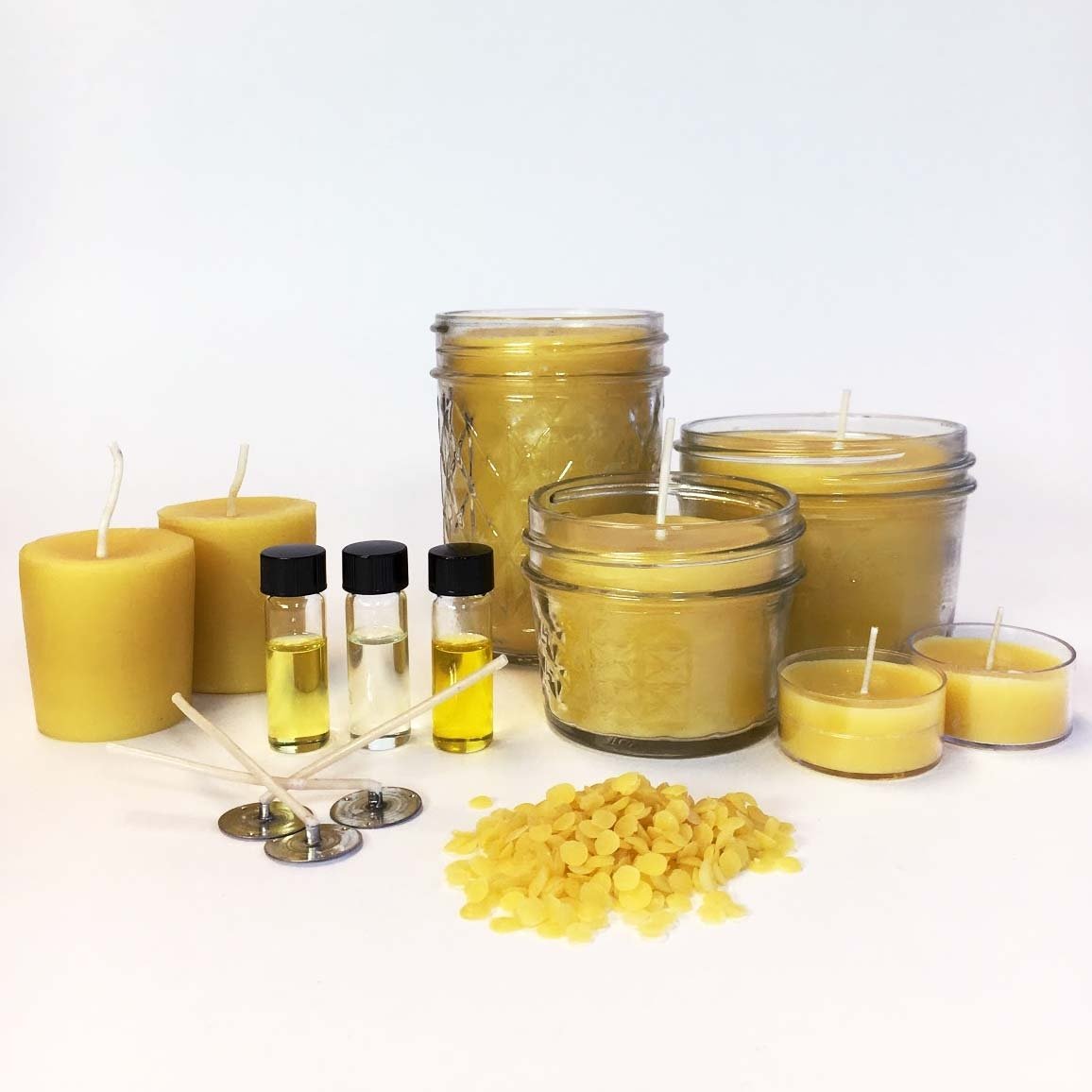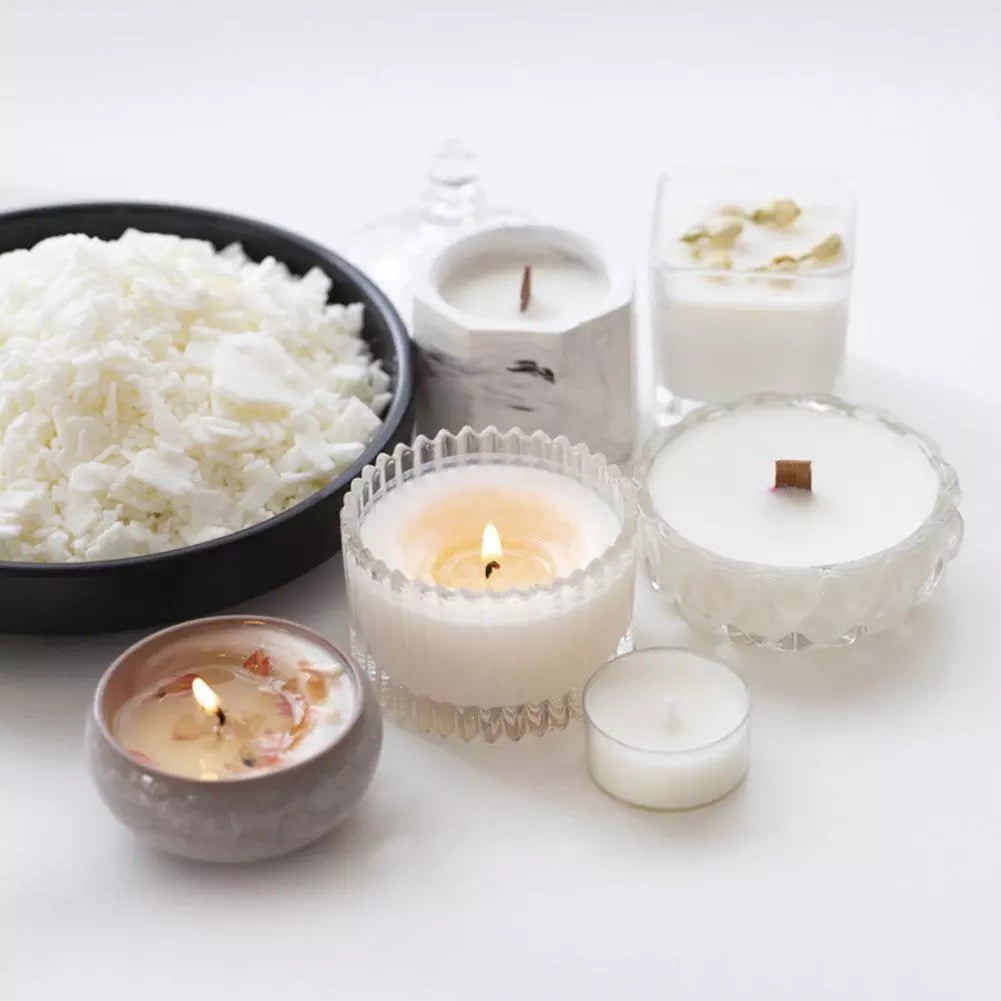With the growing popularity of essential oils, many candle makers are wondering if they can use any essential oil for their homemade candles. In this article, we will explore the world of candle making with essential oils and provide guidance on choosing the right ones for safe and effective results. So, can you use any essential oil for candle making? Let’s find out.
When it comes to candle making, selecting the right essential oil is crucial. Not only does it contribute to the scent of your candles, but it also affects their overall quality and safety. Understanding different types of essential oils is key to making an informed decision. We’ll discuss the differences between pure, synthetic, and fragrance oils, as well as why high-quality and pure essential oils are important for candle making.
Factors such as scent strength, compatibility with candle wax, and potential allergies should also be taken into consideration when selecting essential oils for your candles. Different notes in essential oils can greatly impact the throw of the scent in your candles. We’ll guide you on how to assess these notes and choose essential oils that complement your desired candle scents.
By understanding the basics of candle making with essential oils and considering these factors when selecting them, you can create beautifully scented candles that are both safe and effective. So let’s dive deeper into the world of essential oils and discover which ones are best suited for candle making.
Understanding Different Types of Essential Oils
Pure Essential Oils
Pure essential oils are derived directly from plants through methods such as steam distillation or cold pressing. These oils are considered to be the highest quality and most potent form of essential oils, as they retain the natural properties and aromas of the plants they are extracted from. When using pure essential oils for candle making, you can expect a strong scent throw and a more authentic aroma compared to synthetic or fragrance oils.
Synthetic Oils
Synthetic oils, also known as fragrance oils, are chemically created to mimic the scents of natural essential oils. While synthetic oils may offer a wide range of fragrances that may not be naturally available, they often lack the therapeutic benefits associated with pure essential oils. It’s important to note that not all synthetic oils are safe for candle making, as some may contain additives or harmful chemicals that can affect the quality and performance of your candles.
Fragrance Oils
Fragrance oils are specifically formulated for use in candles and other scented products. They can be made from a combination of natural and synthetic ingredients to create unique scents. Unlike pure essential oils, fragrance oils do not offer the same therapeutic benefits. However, they are often more affordable and can provide a wider variety of scent options for candle makers.
When choosing between pure essential oils, synthetic oils, or fragrance oils for your candle making projects, it’s important to prioritize your goals and preferences. If you’re looking for therapeutic benefits alongside pleasing aromas, pure essential oils would be the best choice. If you’re primarily focused on creating unique scents or cost-effectiveness, fragrance or synthetic oils may be suitable options for your candle making needs.
Factors to Consider When Selecting Essential Oils for Candle Making
Understanding Scent Strength and Compatibility with Candle Wax
When selecting essential oils for candle making, it is crucial to consider the scent strength and compatibility with the chosen candle wax. Different essential oils have different levels of fragrance intensity, and this can greatly affect the overall scent throw of the candle. Some essential oils, such as lavender or citrus oils, have a strong scent that can easily fill a room, while others may have a more subtle aroma.
Additionally, it is important to choose essential oils that are compatible with the type of candle wax being used. Certain essential oils may not blend well with specific waxes or may cause them to melt unevenly. It is advisable to research or consult with experts to ensure that the chosen essential oil will work harmoniously with the selected wax.
Potential Allergies and Sensitivities
Another factor to consider when selecting essential oils for candle making is potential allergies and sensitivities. Some individuals may have allergies or sensitivities to specific scents or components found in certain essential oils. It is crucial to be mindful of these potential allergic reactions when selecting essential oils for candles, especially if they are intended as gifts or for personal use.
To mitigate any potential risks, it is recommended to perform patch tests on a small area of skin before using an unfamiliar essential oil in candles. Additionally, taking into account any known allergies or sensitivities of those who will be in close proximity to the candles can help ensure the safety and enjoyment of all individuals.
Achieving Desired Scent Combinations
Selecting essential oils that complement each other and create unique scent combinations is an important aspect of successful candle making. Essential oil notes play a significant role in determining how different scents blend together. For example, top notes refer to initial bursts of scent that quickly dissipate, whereas base notes provide lasting depth and richness.
When choosing essential oils for candle making, consider the desired scent combination and whether it aligns with the notes of the chosen oils. Experimenting with different combinations can lead to exciting discoveries and signature scents that make homemade candles truly special.
By considering factors such as scent strength, compatibility with candle wax, and potential allergies, candle makers can ensure that they select essential oils that not only enhance their candles’ fragrance but also provide a safe and enjoyable experience for all.
Essential Oils Best Suited for Candle Making
When it comes to candle making, choosing the right essential oils is crucial in achieving a desired scent and ensuring a safe and effective candle. While there are many essential oils available in the market, not all are suitable for candle making. In this section, we will discuss a wide range of essential oils that are commonly used and safe for candle making.
| Essential Oil | Scent Throw |
|---|---|
| Lavender | High |
| Peppermint | High |
| Citrus (such as orange or lemon) | Medium-High |
| Eucalyptus | Medium-High |
In addition to considering scent throw, it’s also important to choose essential oils that blend well together to create unique and captivating candle scents. Mixing different essential oils can add complexity and depth to your candles’ fragrances. Some combinations that work well together include:
- Lavender and Rosemary.
- Orange and Cinnamon.
- Ylang-Ylang and Patchouli.
It’s worth experimenting with different combinations to find your signature blend. Remember to always test the scent of your candles before making a larger batch to ensure you have the desired fragrance strength and balance.
When working with essential oils for candle making, it is important to note that some essential oils may not be suitable due to potential hazards or unsuitability for candle making. Certain essential oils, such as camphor or wintergreen, can pose risks when used in candles.
These oils are highly flammable and could cause a fire hazard if not used properly. It’s important to research and educate yourself about any potential risks or side effects associated with specific essential oils before incorporating them into your candles.
In the next section, we will discuss certain essential oils to avoid in candle making and provide alternative options or precautions to take when working with potentially unsafe essential oils. Stay tuned for more information on how to ensure safe and high-quality candles while using essential oils.
Essential Oils to Avoid in Candle Making
When it comes to candle making with essential oils, it’s important to remember that not all essential oils are suitable for this purpose. Some essential oils can be hazardous or may have adverse effects when used in candles. Here are some essential oils that you should avoid using in candle making:
- Eucalyptus Oil: While eucalyptus oil is popular for its fresh and invigorating scent, it has a high flashpoint and can potentially cause a candle to ignite. It is best to avoid using this oil in candles.
- Citrus Oils: Citrus essential oils such as lemon, lime, and orange have a low flashpoint and can cause your candle to become flammable. It’s best to use citrus fragrance oils specifically formulated for candle making instead.
- Camphor Oil: Camphor oil has a strong smell and is often used in medicinal products. However, its high heat release can create an intense flame that may be dangerous when used in candles.
- Patchouli Oil: While patchouli oil is loved for its earthy and musky scent, it can overpower other fragrances and at times produce an unpleasant odor when burned.
It’s important to note that individuals may have different sensitivities or allergies to certain essential oils. Always perform a small test before using any new essential oil in your candles. Additionally, keep in mind that certain essential oils may interact negatively with the wax you are using and affect the performance of the candle.
In case you’re looking for alternatives or precautions when working with potentially unsafe essential oils, consider using fragrance oils that specifically cater to candle making. These oils are designed with safety considerations in mind and often mimic the scents of popular essential oils without the drawbacks mentioned above.
By being aware of which essential oils to avoid, you can ensure a safe and enjoyable candle-making experience. Now that we’ve covered essential oils to avoid, let’s move on to the essential oils that are best suited for candle making in the next section.
Tips and Techniques for Using Essential Oils in Candle Making
One of the most exciting aspects of candle making is the ability to customize scents using essential oils. However, successfully incorporating essential oils into candles requires a bit of knowledge and technique. In this section, we will provide you with some valuable tips and techniques to help you make the most out of using essential oils in your candle making process.
Measuring Essential Oils: Accurate measurement of essential oils is crucial for achieving the desired scent strength in your candles. It is recommended to use a digital scale for precise measurements. Typically, a general guideline is to use around 1 ounce (30 mL) of fragrance oil per pound (454 g) of wax in your candle recipe. However, the specific recommended usage rate may vary depending on the particular essential oil or fragrance oil.
Blending Essential Oils: Blending different essential oils allows you to create unique and captivating scents for your candles. Before blending, it’s important to consider the compatibility and balance between different oils. Some essential oils harmonize better together than others. For example, lavender and citrus oils often pair well together, creating a relaxing yet refreshing aroma. Experimenting with different oil combinations will help you discover your favorite blends.
Testing Essential Oil Scents: To ensure that the scent of your candle is just right, it’s essential to test your chosen combination of essential oils before pouring them into your wax. Simply placing a few drops onto a cotton ball or tissue paper can give you an idea of how the fragrance will develop as it burns in a candle.
Keep in mind that certain scents can intensify or change when mixed with other ingredients, such as candle wax or additives.
To maximize scent throw in your candles, consider applying these techniques during the candle-making process:
– Add Fragrance Oil at Optimal Temperature: It is generally recommended to add fragrance oils when the melted wax is at a temperature between 175-185°F (79-85°C). This temperature range helps to prevent the essential oils from evaporating or breaking down due to excessive heat.
– Stir Thoroughly: After adding the essential oils to your melted wax, make sure to stir thoroughly and continuously for approximately two minutes. This ensures that the fragrance oil is evenly incorporated into the wax, promoting consistent scent distribution.
– Pouring Temperature: The pouring temperature of your candle wax can also impact scent throw. Pouring at a lower temperature enables better scent retention since the essential oils are less likely to evaporate during the cooling process.
By following these tips and techniques, you can enhance your candle making experience and create candles that emit delightful scents throughout their burn time. Remember, practice makes perfect, so don’t be afraid to experiment with different combinations and methods to find what works best for you.
Enhancing Candle Safety and Shelf Life with Essential Oils
When it comes to candle making, using essential oils not only adds fragrance but can also enhance the safety and shelf life of your candles. Certain essential oils have natural antimicrobial or preservative properties that help to prevent microbial growth and extend the lifespan of your candles. In this section, we will discuss how specific essential oils can enhance the safety and shelf life of your homemade candles.
- Tea Tree Oil: Known for its powerful antimicrobial properties, tea tree oil can help inhibit the growth of bacteria and fungi in your candles. Adding a few drops of tea tree oil to your candle wax can help prevent mold or mildew formation.
- Cypress Oil: Cypress oil is another essential oil with excellent antimicrobial properties. Incorporating cypress oil into your candle making process can protect your candles from bacterial and fungal growth, ensuring they stay fresh for longer periods.
- Lemon Oil: Lemon essential oil is not only refreshing but also acts as a natural preservative due to its high acidity content. Adding lemon oil to your candles can help increase their shelf life and maintain their scent over time.
To make the most out of these benefits, it is important to store and care for your essential oil candles properly. Here are some tips:
- Store in a cool, dry place: Exposing your candles to excessive heat or sunlight may cause them to melt or lose their scent faster. Store them in a cool, dry place away from direct sunlight or heat sources.
- Avoid moisture: Moisture can affect the quality and lifespan of your candles. Make sure to keep them away from humid environments or sources of water.
- Trim the wick: Regularly trimming the wick before each use can prevent excessive soot and ensure a cleaner burn, extending the life of your candle.
- Use a lid or cover: When not in use, cover your candles with a lid or wrap them tightly in plastic to protect them from dust and maintain their fragrance.
By incorporating essential oils with antimicrobial properties into your candle making and following proper storage techniques, you can enjoy longer-lasting candles that smell great. Experiment with different essential oils to find the ones that complement your preferred scents while providing additional benefits for safety and shelf life.
Frequently Asked Questions About Using Essential Oils in Candle Making
As the popularity of using essential oils in candle making continues to grow, it is natural for questions and concerns to arise. In this section, we will address some frequently asked questions about using essential oils in candle making and provide clarification on common misconceptions.
One common question is whether it is possible to mix different essential oils in candles. The answer is yes, you can absolutely blend different essential oils to create unique and captivating scents for your candles. In fact, blending different oils can often result in more complex and appealing fragrances.
However, it’s important to consider the compatibility of the essential oils you are mixing together. Some oils may not blend well or their scents may overpower each other. It’s recommended to start with small test batches and experiment with different ratios until you achieve the desired scent combination.
Another frequently asked question is whether essential oils can be used for soy wax candles. The answer is yes, essential oils are commonly used in soy wax candle making. Soy wax has a lower melting point compared to other waxes, which means that it doesn’t get as hot when melted.
This makes it ideal for retaining the delicate aromas of essential oils during the candle making process. It’s important to note that soy wax has a lower fragrance load capacity compared to other waxes, so you may need to use a higher concentration of essential oil in your soy wax candles for a strong scent throw.
One important consideration when using essential oils in candle making is ensuring that they are safe for use around pets or individuals with allergies. Some essential oils can be toxic to animals or cause allergic reactions in certain individuals. It’s crucial to research and understand any potential risks associated with specific essential oils before incorporating them into your candles.
Conclusion
In conclusion, it is clear that choosing the right essential oil is crucial for safe and effective candle making. Throughout this article, we have explored the basics of candle making with essential oils, delved into different types of essential oils, discussed factors to consider when selecting them, identified the best oils for candle making, highlighted oils to avoid, provided tips and techniques for incorporating essential oils into candles, and explored how certain essential oils can enhance safety and shelf life.
The key takeaway from this article is that not all essential oils are suitable for candle making. It is important to choose high-quality, pure essential oils that are compatible with candle wax and have a strong scent throw. Additionally, considering factors such as scent strength, potential allergies, and compatibility with desired candle scents is crucial in creating a successful final product.
We encourage readers to start experimenting with different essential oils in their homemade candles. Not only do these oils add beautiful scents to our living spaces but they also offer various benefits such as relaxation, stress relief, and mood enhancement. By following the guidelines outlined in this article and ensuring proper safety measures are taken when working with potentially unsafe essential oils, anyone can enjoy the art of candle making using these natural elements.
So next time you sit down to make candles at home or perhaps embark on a new business venture in artisanal candle making, remember to select your essential oils wisely. Done correctly, using appropriate essential oils will not only provide you with beautiful scented candles but will also create an indulgent sensory experience for yourself and others to enjoy.
Frequently Asked Questions
What essential oils are safe for candle making?
When it comes to essential oils that are safe for candle making, it’s important to consider a few factors. First, ensure that the essential oil you choose is suitable for burning and won’t release any toxic fumes.
Commonly used and generally safe essential oils for candles include lavender, lemongrass, peppermint, eucalyptus, and citrus oils like orange or lemon. However, do keep in mind that some individuals may have sensitivities or allergies to certain essential oils, so it’s always wise to conduct a small test batch before creating larger quantities of candles.
Can I use any fragrance oil to make candles?
While fragrance oils are specifically formulated for candle making purposes, not all fragrance oils are suitable for use in candles. It’s crucial to choose fragrance oils that are labeled specifically for candle making and have been tested by reputable suppliers.
These fragrance oils are designed to withstand higher temperatures without compromising the scent or releasing harmful substances when burned. Using other types of fragrance oils not intended for candle making may result in poor scent throw, uneven burning, discoloration or even safety issues.
What can I use instead of fragrance oil for candles?
If you’re looking for an alternative to fragrance oil for your candles, natural options can be quite effective. One alternative is using dried herbs or flowers such as lavender buds or rose petals directly within the wax mixture itself. This can impart a subtle but pleasant aroma to your candles when burned.
Additionally, you could experiment with infusing carrier oils such as sweet almond oil or jojoba oil with your favorite herbs or spices and incorporate this infused oil into your candle recipe. However, be aware that using these alternatives might result in a milder scent compared to what is achievable with fragrance oils specifically formulated for candle making purposes

Welcome to my candle making blog! In this blog, I will be sharing my tips and tricks for making candles. I will also be sharing some of my favorite recipes.





